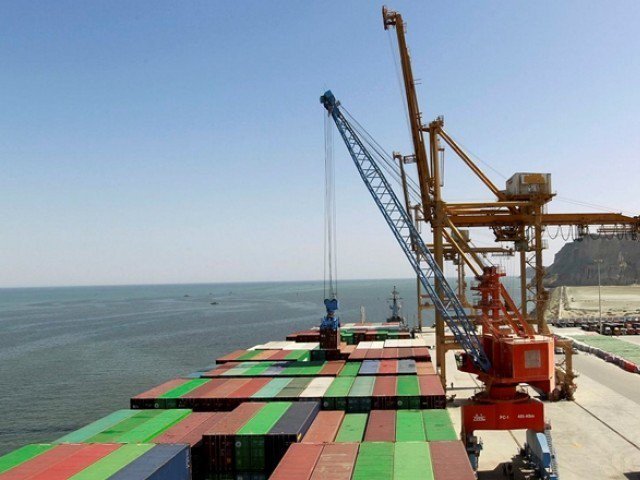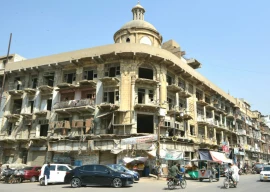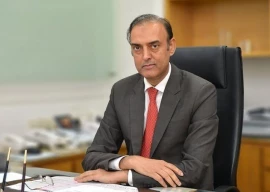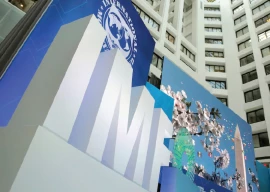
SEZs are often considered a ‘miracle pill’ for attracting foreign investments but they also mean lost revenues in the shape of income taxes and customs duty on the import of machinery. So, if Chinese shift their labour-intensive industries to Faisalabad, they won’t be paying any corporate taxes or carbon taxes for a decade – making their products more competitive.
Domestic producers might have to shut down their operations sooner or later. The whole initiative might prove to be a double whammy for Pakistan’s economy as jobs created by the SEZ initiative might not even offset the jobs lost due to poor competitiveness of the domestic players.
What makes sense is to promote specialised clusters around Export Processing Zones (EPZs) that would add value to the country’s existing exports. For example, the government could facilitate the establishment of specialty towns for the production of sports gloves or trainer kits near the Sialkot EPZ.
This way a buyer from the EU could purchase 100,000 pairs of gloves all at once from various manufacturers co-located there. So, if the Board of Investment (BOI) offers a 10-year income tax break on setting up new sports-related manufacturing plants and allows duty-free import of machinery, local players in Sialkot will jump at the opportunity to invest in the sports SEZ near Sialkot.
However, the government has opted for a ‘top-down’ approach when it comes to identifying the SEZs. Islamabad is pitching Rashakai as its preferred SEZ for the next phase of the China-Pakistan Economic Corridor (CPEC). Though close to the Risalpur EPZ which boasts of good infrastructure, this EPZ hosts a lot of warehouses and has not really taken off in terms of exports.
The region around Rashakai and Charsadda is well-known for gemstones but it is actually the Karachi EPZ that enjoys specialisation in gems and jewellery. So, the strategic fit here is missing and the proposed tax, tariff and regulatory incentives will create severe economic distortions instead of fuelling organic growth.
If the government is looking to attract Chinese FDI, it should prepare blueprints for the SEZs specialised in the production of agricultural machinery so that benefits of low-cost Chinese production are passed on to Pakistan’s agricultural sector.
Similarly, we could set up automobile cities in the Dhabeji SEZ near Karachi as trade barriers are huge when it comes to automobile spare parts, so the initiative will help bypass the barriers in the short run.
Private sector should take lead
Good infrastructure and access to global markets is a pre-requisite but specialising in a particular trade is way more important to achieve economies of scale and of scope in the long run.
When it comes to launching new SEZs, it is the private sector that should take the lead. This is because the government is usually part of the problem and excessive bureaucracy in SEZ rules could defeat the purpose.
As per paragraph 13 of the Special Economic Zones Rules 2013, the SEZ authority shall hold a public hearing to engage all stakeholders in a ‘bottom-up’ approach and minutes of that hearing will be submitted along with any proposal for a new SEZ.
However in reality, we see this practice is rarely observed if ever and such public consultation exercises are often skipped, reflecting a lot on the part of government about its seriousness to spur industrial growth.
SEZs are definitely not the ‘tipping point’ for the fragile industrial sector. With the exception of China, the SEZ business is often tricky and fast-growing developing economies such as India are littered with hundreds of these white elephants.
Such ecosystems sustain only when driven by market forces instead of a pure top-down approach championed by governments – not to mention the need for institutional reforms to create a better legal environment and an efficient regulatory system.
In the absence of such enabling factors, SEZs often end up as tax havens and special money laundering zones through creative engineering of export invoices.
The writer is a Cambridge graduate and is working as a strategy consultant
Published in The Express Tribune, December 10th, 2018.
Like Business on Facebook, follow @TribuneBiz on Twitter to stay informed and join in the conversation.
1732090022-0/Elmo-and-Amelia-(1)1732090022-0-405x300.webp)
1725523665-0/Minecraft-Movie-(1)1725523665-0-165x106.webp)

1732089759-0/BeFunky-collage-(75)1732089759-0-165x106.webp)


1732084432-0/Untitled-design-(63)1732084432-0-270x192.webp)










COMMENTS (3)
Comments are moderated and generally will be posted if they are on-topic and not abusive.
For more information, please see our Comments FAQ